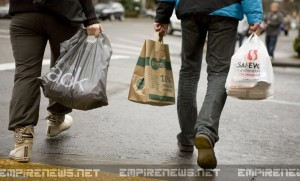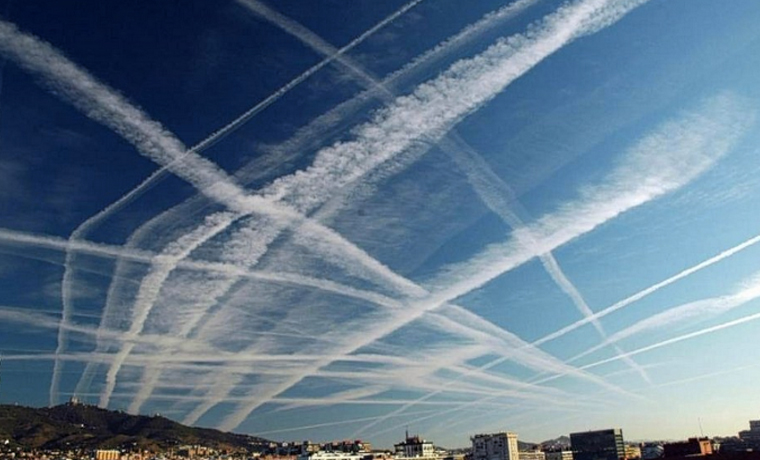CHICAGO, Illinois – 
Quickly following California governor Jerry Brown’s ban on plastic bags in his state, Illinois lawmakers announced that they would not be ‘out done’, and quickly passed a law banning both plastic and paper bags from grocery and department stores throughout the state.
“For some reason, there has been talk for years in several states, with California leading the way, of banning plastic bags – and only plastic bags,” said Illinois congressman Aaron Silver. “I understand that the use of oils for creating something that people throw away almost instantly is a waste, but apparently these other states aren’t aware that it causes more environmental pollution and total waste to create paper bags over plastic.”
Environmentalists agree with Silver’s stance on the topic. Science professor at Chicago University Myles Kent was at the forefront of getting paper bags banned along with plastic throughout Illinois.
“Just for paper bags alone, more than 14 million trees are cut down annually,” said Kent. “It takes almost 4 times as much energy, and causes almost 70% more air pollutants to make a paper bag than it does to make a plastic bag. Banning plastic is nonsense. If you’re going to ban one, you really need to ban the other.”
Consumers who learned of the impending changes to their grocery routine were confused and outraged, many wondering what they plan on replacing the bags with so that they can get their food back to their homes.
“Do they expect that I’m just going to carry all my groceries out to my car and then haul them into the house without bags? It’s completely absurd. At this point, I’d pay more just to be able to keep the bags. Isn’t that a damn trip? Pay more for something I used to get for free,” said Destiny Brown, a Chicago resident we spoke to outside of a Price Chopper grocery store. “I swear, I’ll just rip the damn pillowcases off my kid’s beds and I’ll use those. There is no way I can shop without bags.”
“Pillowcases are a pretty good idea,” admitted Silver. “We haven’t yet thought about what the bags would be replaced with, really. It has been suggested that you sew together your old clothes into make-shift bags. Pants with deep pockets might work for small trips. We also urge consumers to consider just tying a bandana to a stick, hobo-style. It’s worked for them for eons, there’s no reason it can’t become a trend amongst environmentally conscious consumers.”
“It’s just that damn government controlling how we live, once more,” continued Brown. “At this point, I might just shop for groceries and other items online and have them delivered – or are they outlawing cardboard shipping boxes in this state, too?”
Silver said that the whole point of banning both paper and plastic bags is to send a message that ‘the environment is good, and ruining it is bad.’
“We really need to save this planet for future generations. They will need oil for other, more important things than bags, like getting around in cars or making kitschy plastic gifts. They will need trees for climbing, and building tree houses, and for clean air to breathe and that sort of thing. We need to protect the people from themselves, and from harm. That’s what we do. We’re the government, and we make decisions for you.”
When asked, Silver had no comment about the possible future legislation of cardboard boxes.

































